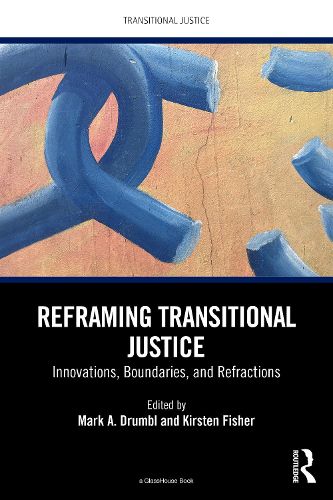Readings Newsletter
Become a Readings Member to make your shopping experience even easier.
Sign in or sign up for free!
You’re not far away from qualifying for FREE standard shipping within Australia
You’ve qualified for FREE standard shipping within Australia
The cart is loading…






This book challenges the simplicity, predestination, and self-evident nature of the contemporary narratives of transitional justice.
Transitional justice is the field of study that examines how states should reckon with massive human rights abuses. The book upends these assumptive narratives on three crucial fronts. The first front is that of innovations. Here, the book questions the ability of transitional justice to deliver tangible successes in an era of rapid and overwhelming technological change and contestation over what constitutes human memory, communicative dialogue, and reliable evidence. The second front involves boundaries. Here the book confronts the professed superpower of transitional justice to do more and more, in an endless concatenation of additives. While there is cause for optimism, this book also suggests that transitional justice remains awkward in how it copes with the existential pressures of environmental, health, and cultural crises. On its third front, refractions, this book identifies how transitional justice addresses racism, misogyny, and democratic backsliding. Throughout, the book asks readers to imagine where the field and practice of transitional justice could go from here - what new innovations are required, what boundaries must be stretched or retrenched, and what perspectives need to be considered due to new ways of seeing current and past atrocities.
Accordingly, this book will be of considerable interest to academics, practitioners working on post-conflict reconstruction, ranging from undergraduate to post-doctoral studies in the areas of law, politics, cultural property, criminology, human rights, international relations, and technology studies.
$9.00 standard shipping within Australia
FREE standard shipping within Australia for orders over $100.00
Express & International shipping calculated at checkout
Stock availability can be subject to change without notice. We recommend calling the shop or contacting our online team to check availability of low stock items. Please see our Shopping Online page for more details.
This book challenges the simplicity, predestination, and self-evident nature of the contemporary narratives of transitional justice.
Transitional justice is the field of study that examines how states should reckon with massive human rights abuses. The book upends these assumptive narratives on three crucial fronts. The first front is that of innovations. Here, the book questions the ability of transitional justice to deliver tangible successes in an era of rapid and overwhelming technological change and contestation over what constitutes human memory, communicative dialogue, and reliable evidence. The second front involves boundaries. Here the book confronts the professed superpower of transitional justice to do more and more, in an endless concatenation of additives. While there is cause for optimism, this book also suggests that transitional justice remains awkward in how it copes with the existential pressures of environmental, health, and cultural crises. On its third front, refractions, this book identifies how transitional justice addresses racism, misogyny, and democratic backsliding. Throughout, the book asks readers to imagine where the field and practice of transitional justice could go from here - what new innovations are required, what boundaries must be stretched or retrenched, and what perspectives need to be considered due to new ways of seeing current and past atrocities.
Accordingly, this book will be of considerable interest to academics, practitioners working on post-conflict reconstruction, ranging from undergraduate to post-doctoral studies in the areas of law, politics, cultural property, criminology, human rights, international relations, and technology studies.